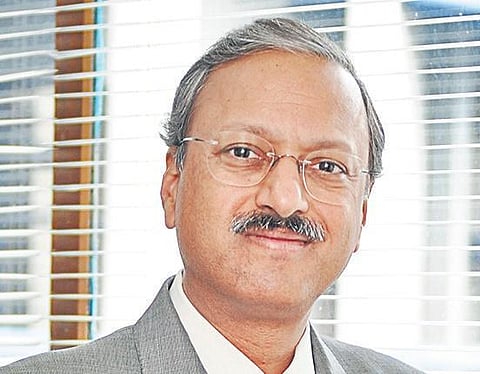

NEW DELHI: It may take up to 12 months for businesses to return to normal and up to 18 months for the economy to recover, feels Harsh Pati Singhania of the Rs 25,000-crore turnover JK Organisation.
“If any past crisis of such a magnitude is any guide — like the 1918 Flu pandemic and the Great Depression — any return to normalcy would take at least 9-12 months, with any meaningful recovery taking another 6-9 months. Of course with strong economic support from the government, the recovery could be faster,” said Singhania in an interview with this publication. Singhania’s group operates a wide range of businesses — from cement and paper plants to dairy products to software companies.
Macro trends now indicate that India’s GDP is set to either shrink or stay flat, from an average growth of 7 per cent over the last decade or so. “Consumer discretionary spending is significantly down, as reflected in virtually zero revenues in April for most companies… primary focus has to be revival of demand, for which confidence-building and funds flow is the key,” he pointed out.
“But without cash revenues, business can only be sustained for a short period. The government’s role in stimulating demand will be crucial, since end consumers should get adequate support to offset loss of livelihoods and incomes,” Singhania said.
The centre last night announced that it would be borrowing some Rs 4.2 lakh crore extra due to the pandemic.
However, it is unclear how much of this would go towards a stimulus package and how much would be used to cover up for lost revenues.
Industry chambers have demanded stimulus worth Rs 10-15 lakh crore. Singhania, like most of his fellow business leaders, feels that this could include “direct income transfers to the hands of the people, financial support to industry in terms of loan moratoriums, forbearance, and additional credit at low interest rates to tide over these difficult times.”
On his own group’s business prospects, he said, “Except for our dairy and seeds business, most of our plants had come to a standstill over the last 40 days. Though we have now restarted a few, a lot depends on the front-end, i.e., demand, and functioning of the entire supply chain. Be it the availability of raw materials, inputs, logistics, distributions channel, liquidity etc... (And for all this ) demand creation remains vital.”
Going ahead, businesses would try to deal with shifts in consumer behaviour, opt for new channels including online sales, revisit planned capex and check for new opportunities arising from shifts in global supply chains.
“We (ourselves) are also making greater efforts to open up new channels of distribution, realigning our supply chain, reviewing capex plans, and rationalising costs. We are also looking at a greater thrust on technology across our businesses,” he said.